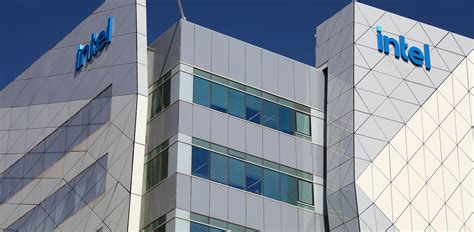The technology industry was abuzz when Intel announced it would pause the development of its $25 billion semiconductor fabrication plant in Israel. This decision resonated deeply in both the tech and financial sectors, sparking debates around the logic of massive investments in regions with complex geopolitical landscapes. While the decision is perhaps multifaceted, it’s crucial to examine the nuances that come into play, including workforce welfare, responsible capital management, and geopolitical stability. Despite Israel’s history of technological innovation, recent events have brought both its stability and the prudence of further heavy investments into question.
One of the most intriguing aspects of the comments on this development is the shift in focus from grandiose architectural designs to practical business requirements. Early plans for the facility, which included amenities like sports fields, green spaces, and even a rooftop health center, were later scrapped in favor of a mundane but necessary parking lot. This change reflects a broader industry trend: moving away from luxury offices to prioritize functionality and cost-effectiveness. It’s reminiscent of how the pandemic forced many companies to rethink extravagant office spaces, opting instead for practical solutions that offer immediate, tangible benefits to employees.
The debate also underscores a significant point: the precariousness of building vital infrastructure in politically volatile regions. Several comments highlighted that while Israel has been a hub for technological advancements since the ’70s, the current geopolitical tensions make it a risky investment environment. Factors like the potential for armed conflicts, trade disruptions, and regional instability bring into question the wisdom of such massive capital deployment. Moreover, examples from the comments, such as Intel’s previous projects being left incomplete due to changing corporate strategies, add another layer of skepticism around long-term planning in such unstable areas.
It’s also worth noting the critical role of governmental policies and subsidies in these decisions. Various governments, including Israel’s, offer incentives to attract such high-tech investments. However, changing political climates can significantly affect these decisions. For instance, one comment pointed out that while Israel is considerably stable, the recent escalation in the Gaza conflict has caused many to reevaluate the risks involved. Even Intel’s history of weathering past conflicts without missing wafer production, as one comment mentioned, does not fully mitigate the new and evolving risks posed by escalating regional conflicts.
Finally, one cannot ignore the environmental aspects brought up during these discussions. The issue of building semiconductor fabs in deserts or regions undergoing reclamation is another critical point. As climate change becomes an increasingly pressing concern, the sustainability of such mega-projects in resource-scarce regions is worth questioning. The argument that the land and its resources might better be left undisturbed finds some resonance, especially when coupled with invasively expanding urban areas. Neatly tied to this are the long-term survival strategies, where places like the U.S. Southwest and Israel face comparable challenges in terms of water scarcity and sustainable development.
In conclusion, Intel’s pause on its Israeli fab project serves as a microcosm of the broader complexities facing the tech industry today. Whether it’s the practicality of investments, geopolitical stability, or environmental sustainability, each facet adds a layer of difficulty to the seemingly simple act of building a factory. As the industry evolves, incorporating more strategic and holistic views will be essential for ensuring that future investments not only advance technology but are also responsibly managed.


Leave a Reply